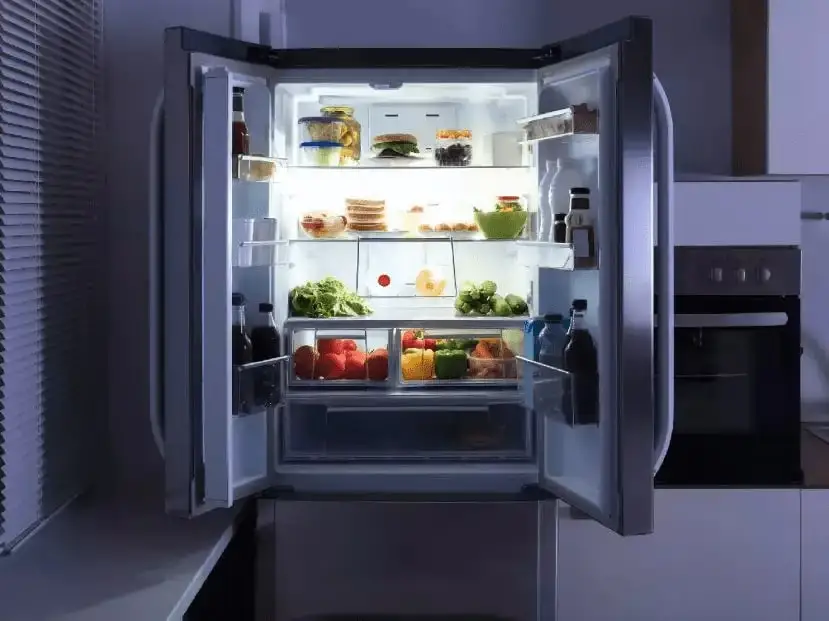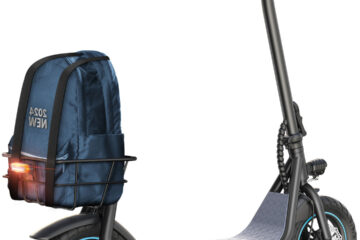If you’ve been shopping for a refrigerator recently, you’ve likely heard about “inverter technology.” While it might sound like just another technical buzzword, the inverter is a game-changer in the world of home appliances. But what exactly does an inverter do in a refrigerator, and why is it so important for modern households? In this article, we’ll dive into the role of the inverter in today’s refrigerators, exploring how it enhances cooling performance, conserves energy, and ultimately saves you money.
With rising energy costs and a push for greener, more sustainable living, understanding how inverter technology can benefit your refrigerator is more relevant than ever. Let’s uncover why upgrading to an inverter refrigerator might just be the smartest choice for your kitchen.
What is an Inverter, and How Does It Work in a Refrigerator?
In traditional refrigerators, the compressor—the component responsible for cooling—operates on a fixed cycle. It either runs at full power or switches off entirely. This on-and-off cycling can lead to uneven cooling, higher energy consumption, and, over time, increased wear on the compressor.
In contrast, a refrigerator with inverter technology uses a variable-speed compressor. This type of compressor can adjust its speed based on the cooling needs. For instance, during the hottest part of the day or when the refrigerator door is opened frequently, the inverter ramps up its power to maintain consistent cooling. When less cooling is needed, it reduces its speed to conserve energy.
Why Inverter Technology Matters: Key Benefits
- Energy Efficiency
Since the inverter compressor adjusts its speed based on demand, it consumes far less electricity than traditional compressors. According to recent studies, refrigerators with inverter technology can reduce energy consumption by up to 30-50%, leading to noticeable savings on your monthly electricity bill.
Example: Imagine two homes, each with a refrigerator running year-round. One family uses a traditional refrigerator, and the other has an inverter refrigerator. By the end of the year, the inverter fridge household could save enough on energy bills to cover a small vacation or a few months of grocery expenses.
- Longer Lifespan
Inverter technology reduces wear and tear on the compressor by eliminating the constant on-and-off cycles. This means a refrigerator with an inverter is likely to last longer and require fewer repairs, saving you both time and money in the long run.
Story: Many homeowners report that after switching to inverter refrigerators, they experience fewer maintenance issues and extended appliance lifespans. John, a homeowner in California, noted that his inverter refrigerator has run smoothly for five years without a single issue, unlike his previous model that needed repairs almost every year.
- Quieter Operation
Traditional refrigerators can be noisy, especially when the compressor kicks in. Inverter compressors, however, operate at a lower speed when cooling needs are minimal, resulting in significantly quieter operation. This makes inverter refrigerators a perfect choice for open-plan kitchens or homes where noise reduction is important. - Consistent Cooling
Inverter technology keeps the temperature inside the refrigerator more consistent, which is crucial for preserving food quality. Fresh produce, dairy products, and meats benefit from stable temperatures, staying fresher for longer.
Example: Think of an inverter refrigerator as a gentle breeze compared to a gusty wind—it’s more steady and predictable, which is exactly what your food needs for optimal storage.
Choosing the Right Inverter Refrigerator: Key Factors to Consider
- Brand Reputation: Not all inverter compressors are created equal. Choosing a reputable brand known for quality inverter technology can make a difference in performance and durability.
- Energy Star Rating: Look for refrigerators with a high Energy Star rating to ensure maximum energy efficiency.
- Capacity Needs: Ensure the refrigerator’s size and features meet your household’s demands, especially if you often store large quantities of food.
- Warranty and Support: Since inverter technology is an investment, consider the warranty and service options offered by the manufacturer.
Inverter Refrigerators vs. Traditional Models: Is It Worth the Investment?
While inverter refrigerators tend to have a higher upfront cost, the energy savings, extended lifespan, and low maintenance often make them a more economical choice in the long run. For example, if you’re replacing a 10-year-old refrigerator, switching to an inverter model could start saving you on energy bills right away, offsetting the initial cost within just a few years.
Conclusion: Is an Inverter Refrigerator Right for You?
In today’s world, energy efficiency and sustainability are more important than ever. An inverter refrigerator offers not just a better way to keep your food fresh but also a smarter approach to energy consumption. With quieter operation, longer life, and consistent cooling, inverter technology has redefined what a refrigerator can do. Whether you’re upgrading your current model or buying your first inverter refrigerator, this investment can enhance your daily life while helping you save on energy costs.
So, next time you’re on the lookout for a new refrigerator, remember that opting for inverter technology could be one of the best decisions you make for your home. Your wallet—and the planet—will thank you.




